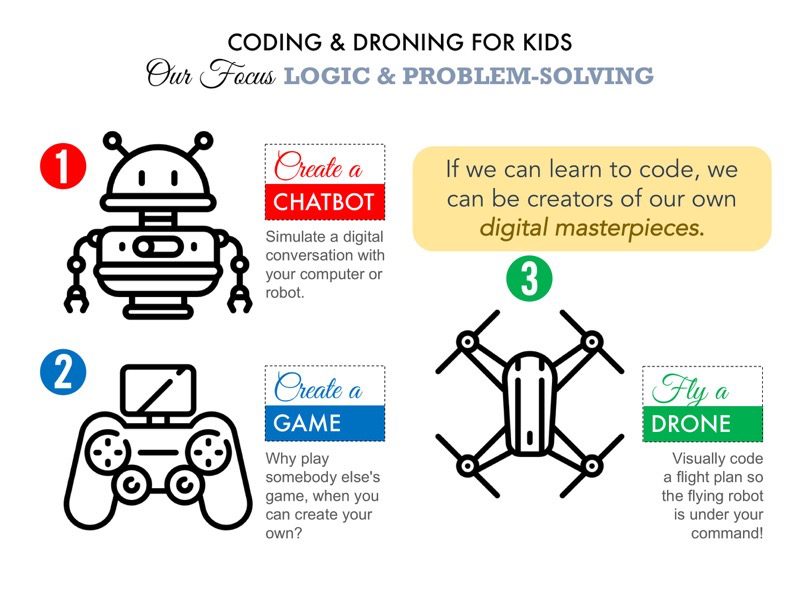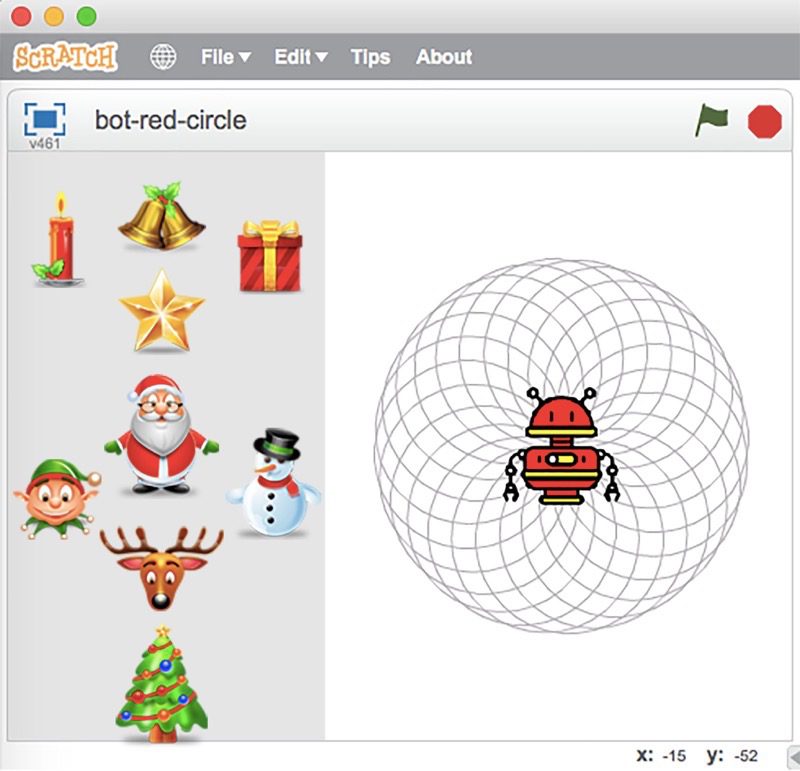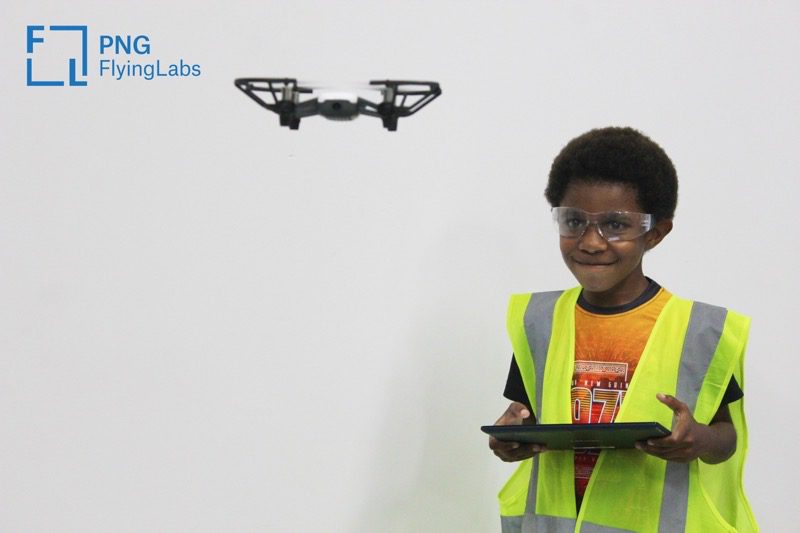
In a Hardware Store, Papua New Guinea Flying Labs Brings STEM Training to Local Students
Papua New Guinea Flying Labs have expanded this training program outside of the city with favorable response and enthusiasm from other working parents.
May 20th, 2020
By Kevin Soli, Papua New Guinea Flying Labs
Papua New Guinea Flying Labs is teaching students about science, technology, engineering, and mathematics (STEM), through the magic of drones. These hands-on trainings are vital to building local capacity, sharing knowledge, and shaping the future generation by empowering an inclusive community in the city of Port Moresby. Papua New Guinea Flying Labs is grateful for the opportunity to have partnered with City Pharmacy Limited Group Foundation (CPL), a supporter of early childhood learning and financial literacy programs in Papua New Guinea (PNG).
"CPL Foundation is proud to partner and support the SOLIs and Papua New Guinea Flying Labs with the coding and droning afterschool program as it is one of the newest programs introduced in the country" ~ City Pharmacy Limited Group Representative
The partnership was active from the end of 2019 academic year into Christmas and early 2020. We were offered a conference room in one Hardware Haus store to run our training during the holiday season by the Founder and Managing Director of CPL Group of Companies. The Hardware Haus management and staff were supportive of our program and allocated the room amidst their regular business hours. We were also fortunate to have a café within the same building were at times kept parents entertained during their children's drop-off and pick-up.

Our coding and droning training exposed students to digital tools and algorithms to (1) create simple chatbots, (2) create computer games, and (3) control lightweight flying robots or mini drones indoors. We divided our training into two parts. The first part focused on hands-on with the use of MIT's Scratch programming language or block-based coding. This is a visual programming language where computer instructions are mainly represented as LEGO-like colored blocks. Scratch is one of the popular block-based programming languages that introduce young learners to computer programming to increase computational literacy. Using Scratch, our students created digital conversations with a chatbot and a Santa game using visually appealing Christmas icons. We also use Scratch to remotely control mini drones such as DJI Tellos when teaching geometry and directional games.

The second part of the training focused on the basics of drone parts and functions, drone movements (up, down, forward, backward, left, right, turning clockwise/counter-clockwise), and drone safety. We promote 'flying smart, flying safe, and having fun.' Students wore safety vests and safety glasses while manually flying the mini drones at shoulder height. We help students muster the confidence for their first flight and introduce them to basic flying movements using their left and right hands. It is great to see students' faces glow in amazement when the flying robots are airborne under their command within the confines of a conference room! Certificates of achievement were presented to all students who had completed our 8 hours of hands-on training.

We are encouraged by the testimonials of parents who entrusted their children to undergo our afterschool STEM program:
- "Oh, WOW! Fantastic. Thank you very, very much for the classes. It was exactly what I imagined, and the kids loved it!" ~ E.N.
- "Now they cannot sit still and asking if there will be another similar session so that they can attend again. They loved your presentation, fun-filled, and educational settings" ~ P.S.
- "Thank you for the photos, and thank you for looking after the girls while they were in your care. They enjoyed themselves especially making some new friends" ~ C.A
- "My son's been so excited participating in your afterschool program and asks if there are any follow-up programs to continue upgrading his new-found knowledge" ~ M.W
There was a total of 12 schools represented. About 20 percent of students who attended our training were girls, and 80 percent were boys. Other schools in the city have expressed interest in our program with a need for teachers' professional development in STEM in PNG. It is our goal to encourage more young girls in future STEM-related programs such as coding and droning in Port Moresby city. We are excited to announce that Papua New Guinea Flying Labs have expanded this training program outside of the city with favorable response and enthusiasm from other working parents.
Thank you to the CPL Foundation and the Hardware Haus staff for allowing us to have temporarily transformed their conference room into a creative space. Without the WeRobotics microgrant and drone training guidance, our program would have lacked the technological magic to inspire our students. Theodist, Port Moresby sponsored Papua New Guinea Flying Labs' rollup banners. We acknowledge all the parents who believed in us to provide a learning opportunity for their children to be digital creators and problem-solvers as we all advance.
Category(s)
Location(s)
Recent Articles
View All »

Fixed-Wing, Rotary-Wing, and VTOL Drone Training with Japan Flying Labs
